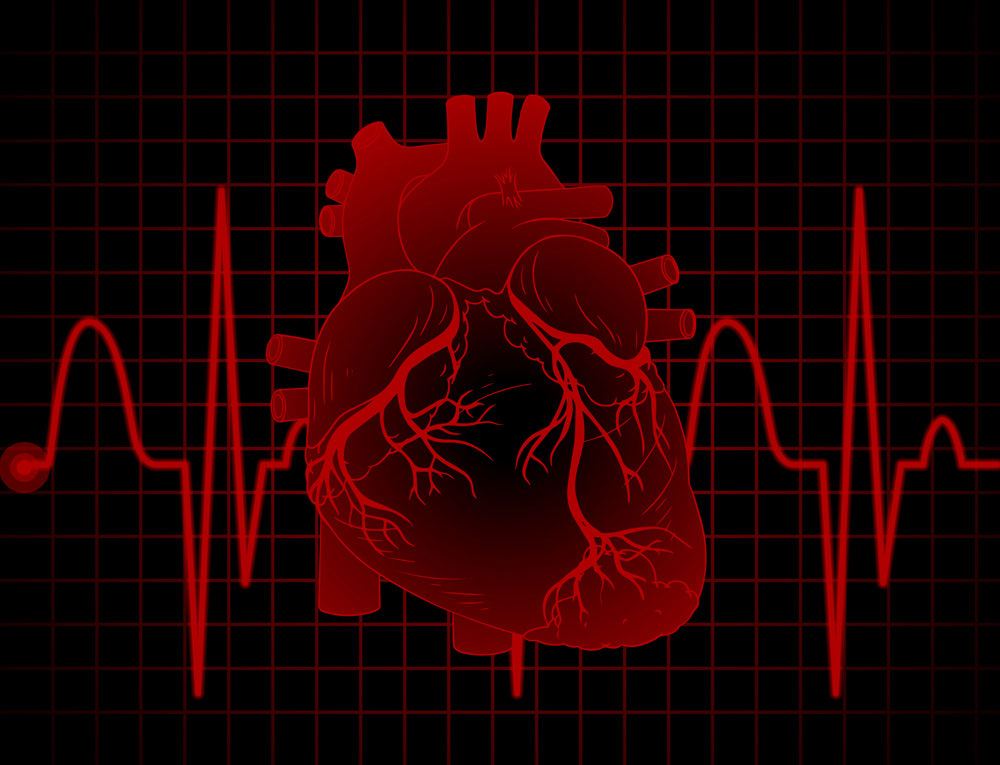
Atrial Fibrillation
Typically, the heart contracts and relaxes regularly. Specific cells in the heart produce electrical signals that enable the heart to contract and pump blood. However, in the case of atrial fibrillation (AF), the heart's two upper atria do not beat as they should because of the deterioration in the heart's electrical activity. If the heart does not beat regularly, it causes the body not to receive enough oxygen and nutrients.
What is It?
The answer to the question of what is atrial fibrillation is "irregular and rapid contraction of the atria as a result of electrical abnormalities arising from the atria, the upper region of the heart." This condition is characterized by the irregular and rapid beating of the heartbeat, different from its normal rhythm.
What is the Atrial Fibrillation Mechanism?
Under normal conditions, the heart rhythm is controlled from a region called the sinus node. The sinus node is located in the upper part of the right atrium at the top of the heart and produces electrical signals that regulate the heartbeat. However, in it, these electrical signals are oddly propagated in the atria, and the atria contract rapidly and irregularly.
What Are the Atrial Fibrillation Types?
The types are as follows:
- Temporary (paroxysmal): It occurs spontaneously. It usually occurs as a short-term attack. This condition resolves on its own or is treated.
- Long-Standing Persistent: A condition that persists for a certain period and becomes permanent unless treated.
- Persistent: The heart rhythm disorder becomes completely permanent.
What Causes It?
The exact atrial fibrillation cause is unknown. Some factors are considered to cause this situation. These factors are as follows:
- Old age
- Hypertension
- Heart diseases (heart failure, coronary artery disease, heart valve diseases, cardiomyopathy, etc.)
- Diabetes
- Thyroid diseases
- Use of drugs or alcohol
- Excessive stress or physical activity
- Family history of the disease
What Are the Atrial Fibrillation Symptoms?
Atrial fibrillation symptoms are as follows:
- Irregular heartbeat
- Heart palpitations
- Chest pain
- Shortness of breath or frequent breathing
- Dizziness or fainting
- Fatigue or weakness
- Sweating
- A feeling of pressure in the chest
How Is Atrial Fibrillation Diagnosed?
It can be diagnosed by your doctor evaluating your heart rhythm by performing tests such as a physical examination, electrocardiogram (ECG), and Holter monitor.
What are the Risk Factors?
Risk factors are as follows:
- Old age
- Hypertension
- Valvular heart disease
- Diabetes
- Family history
- Obesity
How Is It Treated?
Atrial fibrillation treatment varies depending on the underlying causes and symptoms. Treatment options include drugs that regulate heart rate and rhythm and blood thinners. Surgical intervention or procedures such as catheter ablation may be required in some cases.
Frequently Asked Questions
-
Patients should follow a healthy diet. This diet should include low-sodium, low-fat, low-carb, and high-fiber foods. In addition, alcohol, caffeine, and smoking should be avoided.
-
This disease can be seen at any age. However, it is more common in older people. It is also more common in people with heart disease, hypertension, diabetes, and excessive alcohol or drug use.
-
The duration of atrial fibrillation can vary. In some cases, it resolves spontaneously within a few hours. In other cases, it may be permanent.
-
Sometimes it can be passed on in families. However, other environmental factors can also cause this condition in addition to these genetic factors.
-
If left untreated, the risk of blood clots and stroke may increase. There may also be an increased risk of heart failure and other heart problems.
-
Untreated it can cause heart rhythm disturbances, fatigue, shortness of breath, palpitations, and other symptoms. For this reason, appropriate treatment methods should be determined and treated.


